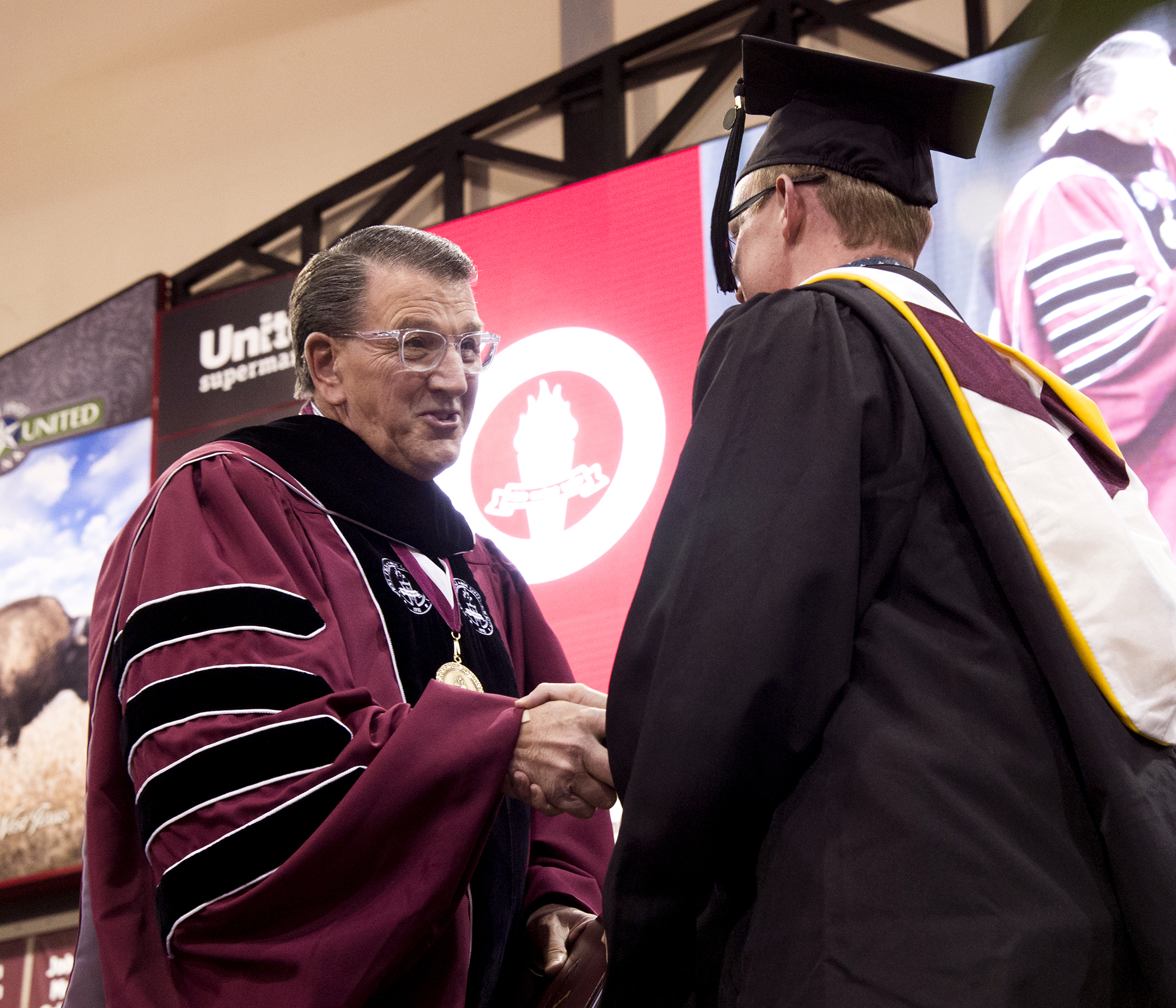
Posted last year on the occasion of summer graduation. The advice is still sound.
West Texas A&M University had its summer graduation last week, as did many universities around the nation. People are always willing to give advice to recent graduates, and I am no exception. Hold on to your hat.
Don’t delay paying off student loans. Three of four graduates have educational debt, and repayment should begin the day after graduation. If a lender “gives” you a grace period, don’t utilize it. Start to reconcile the debt now. The sooner you start, the sooner you finish.
Don’t take time off to relax. The more work experience you accumulate, the more valuable you will be to employers. Experience is not the best teacher; it is the only true teacher. Although it sometimes looks like it, work is not a four-letter word.
Don’t go out and buy a new car. If you have a car, drive it until the wheels fall off. You will not impress anybody if you own a new one, particularly if the title belongs to someone else. Be careful with credit cards. They can bite you in the backside. Your character is what counts; and if you received a good education from a university that is now in the rear view mirror, that counts, too.
Don’t believe the statistics that say there are not enough jobs. If you are hungry and motivated, you can find good work—noble work. If you think a particular job is below your interests or ability, you are uneducated. If you are a graduate of West Texas A&M University, I apologize to you for any part our university played in that perception.
Don’t assume a job is just waiting for you. Ten years ago, underemployment—not unemployment—was just below 10%. This year, underemployment is over 10%. Much conjecture follows, but college graduates increasingly find work that does not require a college degree. In 2008 unemployment was 5.5%; so far in 2019 it is 3.7%. During the same period average student debt at graduation increased about 75%. Demand for some majors is shrinking; however, health professions have increased from 8% to 12% of all available positions. Areas of study and career choices have consequences.
Now, here are some do’s.
Do be careful of the online image you create. Facebook or Instagram posts of you and your friends engaged in foolish activity may seem fun-loving, but future employers may see them as childish and possibly stupid. Like it or not, Facebook, Twitter, Snapchat, and other digital realities give insight into who you are. That perceived reality affects how others see you, and employers worth their salt know it.
Do be willing to relocate. You will have a higher probability to find work tailored to your abilities, interests and life aspirations. Different cities have different employment potential. In some professions, such as nursing and engineering, geography has little impact. In addition, while starting salaries might be a little bit lower than the national averages, careers in primary and secondary education are available almost everywhere.
Do understand the give and take of working. The United States Department of Labor, through the Bureau of Labor Statistics posts annual updates of occupations and median pay. Unemployment rates are at a 17-year low, but future growth is slowing according to Business Insider. Some people such as Ellen Zentner, Morgan Stanley Chief U.S. economist, believes the outlook is bright for recent graduates as the unemployment rate continues to stay at record-low levels.
Do appreciate the relative market value of various pursuits and professions. According to iCIMS The Class of 2018 Job Outlook Report, STEM and business majors account for the highest demands at 52%, yet only 24% of the college seniors queried studied in these fields. The same report identifies five states where employment opportunities are flourishing: Washington, Florida, Maryland, Minnesota and Texas.
Do start early—the sooner the better. Be flexible. Show interest and passion for the work available. Be ready to communicate past work experience. Written and spoken communication skills—for all of the naysayers of students studying in the liberal arts—are in highest demand. The most frequent complaint in hiring offices are typos, spelling and grammatical errors in resumes. Again, naysayers for study in the liberal arts should take note.
Do continue to grow. The job market is ever changing. Almost 20% of Americans work in jobs that didn’t exist 40 years ago. This leads to many jobs in our nation that are currently unfilled, according to a Wall Street Journal opinion piece by Ivanka Trump trumpeting her dad’s establishment of the National Council for the American Worker.
Anticipation, enthusiasm and passion are the most important aspect of any worker, for any job—president, professor or plumber. They transform a job into a calling, and no one can take them away. Unfortunately, nobody can give them away, either, and degrees and certificates don’t guarantee them.
Walter V. Wendler is President of West Texas A&M University. His reflections are available at www.walterwendler.com





Fantastic!
Continue challenging the status quo and moving our students forward.
Hard work and no debt with integrity and Faith will bring tremendous rewards.